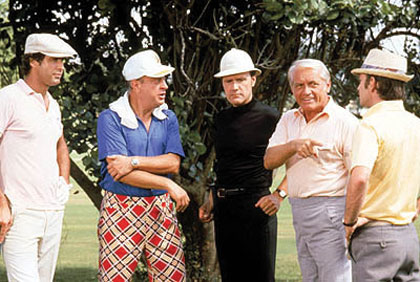How Executives Can Make Bad Decisions
Social networks provide greater access to information, which improves people’s judgment and decision making, right? Not always, according to some recent research.
Topics

A new study suggests that social ties can strengthen the illusion of consensus — when none exists.
Image courtesy of Courtesy Warner Bros. Entertainment.
The conventional wisdom is that social networks are good for decision making because they help people to acquire knowledge that then enables them to make better choices. In other words, the more extensive and active your social networks, the better decisions you’ll presumably make. But could social networks actually impair your judgment and decision making? Consider a recent study conducted by Francis J. Flynn, an associate professor of organizational behavior at the Graduate School of Business at Stanford University, and Scott S. Wiltermuth, a Ph.D. student in organizational behavior there. (Their paper, “Who’s with Me? False Consensus, Advice Networks, and Ethical Decision Making in Organizations,” is under invited resubmission at the Academy of Management Journal.)
In their research, Flynn and Wiltermuth asked participants for their opinions on different ethical dilemmas. For example, in one of the hypothetical scenarios, an employee is caught pilfering pens, paper and other small office supplies. Corporate policy requires that the person be fired on the spot, but she is one of the best workers at the company and is also a long-time employee. So her manager decides to give her a second chance. Was that ethical? The study participants were also asked to estimate how their colleagues might view those same dilemmas. Lastly, they were asked for information that helped determine their position in a social network of their peers. Whom, for instance, did they turn to when they needed advice?
Flynn and Wiltermuth conducted the experiment with three groups: graduate business students, executive education students and employees in the marketing department of a large manufacturing company. For all three samples, the results were the same: The more that people were centrally connected to their peers, the more they tended to overestimate the degree to which their judgments were in agreement with the views of others (a phenomenon called “the false consensus effect”). This was true even when the study participants held a minority opinion on an issue — but mistakenly believed they were in the majority. Simply put, social ties tended to exacerbate — and not mitigate — the false consensus effect. In essence, social ties strengthened the illusion of consensus even when none existed.

Comment (1)
Deanna Diaz